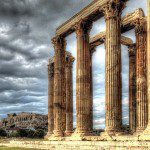On Wednesday June 17 various writers from Patheos Pagan got together to discuss the roles deities play (or don’t play) in our lives. In the blogosphere we often talk at each other and never seem to talk with each other enough. This discussion was an attempt to rectify that.
Our conversation was a long and meandering one and ended up being the size of a small novel so I’ve edited it extensively for readability. If any of this ever feels argumentative while you are reading that’s my fault as an editor. Our conversation was cozy and congenial all the way through. In the weeks to come I’ll be posting more of our group discussion.
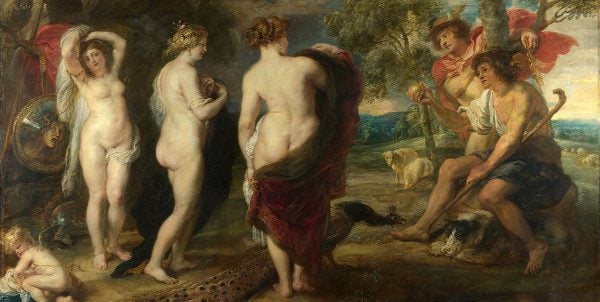
So How Do You Define Your Own Beliefs?
Niki Whiting (A Witch’s Ashram): Honestly? I try *not* to define myself. I’m really wishy washy about it. And it usually depends who’s asking or what the audience is when I do define myself.
Lilith Dorsey (Voodoo Universe): Voodoo priestess, which i do consider pagan. human most days, yet with clear vampyre tendencies.
Jason Mankey (Raise the Horns): I’m a Pagan Wiccan, with the Wiccan more importantly lately. Until recently I’ve always thought of myself as a polytheist. I believe in deities that are distinct and relatable, though I always believed that they were a part of a bigger whole. These days I often use the word phrase “Neo-Platonism” though that would have never occurred to me even five years ago. History shows us that deities change and progress.
John Halstead (The Allergic Pagan): Neo-Pagan of a non-theistic/atheistic/naturalistic/humanistic/archetypalist variety. I believe the gods are archetypes and the archetypes are gods.
Dana Corby (The Rantin’ Raven): I’m a BTW, 3rd° and current senior-most HPS of the Mohsian Trad. I initiated with them in 1973 but originally studied a mish-mash of folk witchcraft and ceremonial magic. Over the years I’ve also become a Bard in the RDNA and a Companion/2nd° in the AODA, but I’m pretty much inactive in both.
Rua Lupa (Paths Through the Forests): I define myself as a Saegoah (“Seeker of Ehoah”, Ehoah meaning “complete harmony within Nature”) – I know its a mouthful. It stemmed from the desire for a more specific label for what I was seeking so I coined a new word for it. Not unlike some German words. In addition to Saegoah I also define myself as a Naturalist – in both meanings of the word: The Study of Nature and Naturalism. I no longer define myself as Druid, though I most connect with Druids in religious spheres.
Rua Lupa: . . . . the supernatural and thus deities are obviously something that didn’t draw me to Paganism. What did draw me to Paganism was its earthiness – the fact that many Pagan practices were participating Nature’s rhythms. My father had always considered me a “Nature child” so it was only natural for me to gravitate that way. Even after they discovered my Paganism (National news! for a Pagan Pride event – I was on drums), and once they understood my position (which too a while), they understood that I never really changed.
Shauna Aura Knight (Seeking the Grail): I define myself as a pantheist. I lean more towards archetypes than gods in the sense of, archetypes as large huge energy chunks of story.
Molly Khan (Heathen at Heart): I’m absolutely a polytheist, though how hard varies from day to day. Working in anglo-Saxon culture, there’s not a lot of myths and lore, so I build off of Norse sources. Are they the same deities? Some days I say no, some days yes, and most of the maybe.
Deity as Archetypes
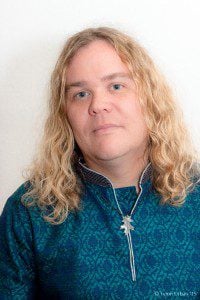
John Halstead: Parts of our psyche that act independently of our conscious minds and have a powerful influence over our behavior and our perception of the world = archetype. It’s important to me to emphasize that they are not mere metaphors. That’s reductive and why I think a lot of people react negatively to calling the gods archetypes. That’s why I say the archetypes are gods, too.
Niki Whiting: Intellectually, I think some version of soft polytheist monism makes sense; my lived experience though tips toward hard polytheism. So I try not to make any grand statements. So, how do you define a god, John? (Can I put on a polytheist conference and say that?)
John Halstead: Niki, I know it when I feel it.
Niki Whiting: Something larger than Self John?
John Halstead: Niki, definitely if by “self” you mean, conscious ego. What about you Niki? What is a god?
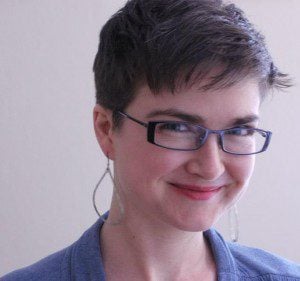
Jason Mankey: John, like traditional deities, do those archetypes offer comfort? I don’t think you “pray” to them but do you invoke them? If you say their name or think of them does something happen internally?
John Halstead: I have prayed to them. And I do invoke them as well. I have sought comfort. Mostly I seek to come closer integrating them into my consciousness.
Niki Whiting: “Victor Anderson said “God is Self and Self is God and God is a person like myself.””
Jason Mankey: That last part sounds like Joseph Smith (founder of the LDS Church-the Mormons).
Niki Whiting Having left monotheist thinking behind I have gained an entirely new respect for Mormonism.
John Halstead: “As man is, god once was, and as god is, man may become.” – Joseph Smith
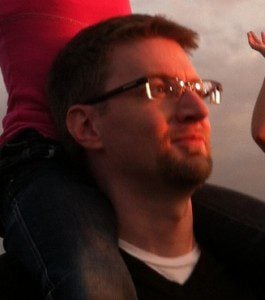
John Halstead: Oh, Niki, I thought of this quote from Gilbert Murray in answer to what is a god: “There are in the world things not of reason, but both below and above it; causes of emotion, which we cannot express, which we tend to worship, which we feel, perhaps, to be the precious elements in life. These things are Gods or forms of God: not fabulous immortal men, but ‘Things which Are,’ things utterly non-human and non-moral, which bring man bliss or tear his life to shreds without a break in their own serenity.”
Jason Mankey: Lilith, do you see the loa as deities, or something a little bit below that?
Lilith Dorsey: Deities that are or were human once, and therefore are representative of cosmic qualities that also make themselves known as archetypes.
John Halstead: I started out a believer (monotheistic), and then I realized how I had created this God that I was worshipping, And then I realized that even after I stopped believing in him, he still was influencing me. … hence, archetypes
Niki Whiting: Wow, great point John. I think archetypes and gods can exist simultaneously.
Archetype as a Job Description And Can You Be Friends With a god?
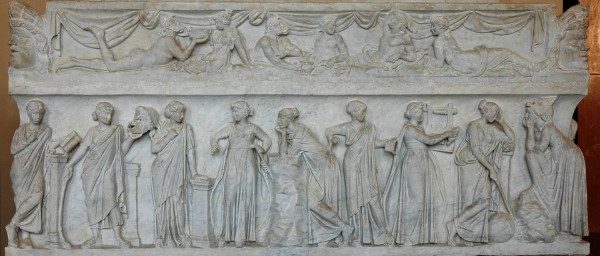
Dana Corby: I think of an archetype as a god’s job description.
John Halstead: Dana, intriguing, can you elaborate?
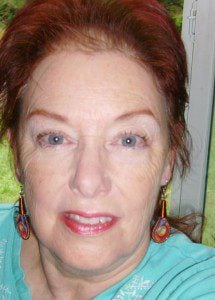
Dana Corby: The grain is not an archetype. It’s a physical thing.
Jason Mankey: I think the gods are the ultimate mystery. I’ve had too many experiences to doubt that they are real in some sense, but I don’t know exactly how they work or exist.
John Halstead: Dana, so is Ceres an archetype and the god is something beyond that?
Molly Khan: Not to speak for Dana, but it’s my perception that” deity of grain” is the archetype, and Ceres is the Goddess holding that job for a particular culture.
Jason Mankey: The deity is a conduit to a larger idea, like grain.
Niki Whiting: Because grain might mean different things in different places.
John Halstead: I’m not sure, but I think we have several different orderings of the relationship of god-archetype-incarnation.
Jason Mankey: Of course we do, the gods reveal themselves in mysterious ways.
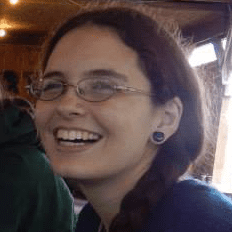
Dana Corby: Molly, you read me aright. While there are many kinds of grain, I don’t think ‘archetype’ is a good word for the *idea* of grain. That would be more like a Platonic ideal. As I see it, the ‘archetype’ is the Deity’s job description or classification — Not unlike the way things fit in a table of correspondences or on the Qabbalistic Tree.
John Halstead: So, carrying that analogy forward, when I’m at work, I may not care so much who people are when they are at home, I just want to get my job done– but at home, I care more about who people are — what’s your relationship with the gods more like: all business or BFFs?
Jason Mankey: Depends on the deity John, but Pan, Aphrodite, Cernunnos, and Dionysus are BFF’s in this house. I’m not sure that we “talk” but they make their ideas known.
Molly Khan: John, it all depends! Sunna and Eostre I honor for their light and warmth functions, but I know less about their personalities. Nerthus I’m kind of in love with.
Dana Corby: I cannot believe in abstract or theoretical Gods.From the very beginning of my Craft activities, I’ve had startling and unexpected communications from them, including being told off. But I’m not dogmatic about it. It seems to me that they exist on multiple planes, and are *both* human constructs and actual beings with lives of their own. Witches have always loved paradox.
Shauna Aura Knight: I used to be more of what I’d identify as a polytheist. When I was a tween/teenager, I was going through a really rough time; really horrific bullying at school. I talked to the Moon/Night Goddess/Angel. She was real to me. I had dreams where I connected to her in that way I can only call divine rapture. I had the occasional vision. I painted her over and over.
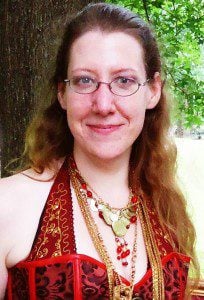
It took many years, and by the time I reconnected with that goddess, I was identifying as a pantheist. I look back on the self that I was and I see how I needed to believe that there was a real goddess out there looking out for me. That she had somehow called me to this work, that I was meant for something more. It kept me from seriously considering killing myself.
Shauna Aura Knight: Now, though, I don’t believe that there is a deity out there “looking out for me.” When I was in my car accident, people said, “The gods are looking out for you, they protected you,” and I just don’t believe that is how it works. If that were the case, then the other folks that were on the road that night who did die in a car accident somehow deserved it? So, I don’t think of the gods as taking a direct action in my life, so much as these old, huge stories that we can connect to. A mirror/lens/mask through which we view the divine. The divine is too big to just engage with, so we interact with a facet of the divine that looks like ourselves.
Are the Gods Distractions?
Jason Mankey: Rua, How do you define your belief (or lack thereof) in deity?
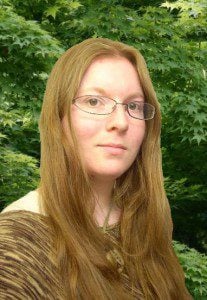
John Halstead: Rua, do you see gods as distractions?
Rua Lupa: Yes.
John Halstead: Please elaborate.
Rua Lupa: Sorry I accidentally pressed enter and didn’t want to leave the quote hanging – am going to elaborate…
Jason Mankey: I thought it was much more bad ass to just say “Yes,” Rua.
Rua Lupa: Yes. But more as unnecessary really. I don’t think they exist so I don’t bother with the subject. In other words I don’t see the point (being a non believer).
Jason Mankey: When I started out twenty years ago it seems like deity was this bigger part of Paganism. Books made constant reference to the Triple Goddess and the Great Lady. It seemed like such an ESSENTIAL part of everything. I can’t imagine anyone seeing the gods as “distractions” even fifteen years ago.
Niki Whiting: I think there is a definite place for non-god focused/believing Pagans. I tell people that if they don’t experience gods they’re not wrong. I do, I’m neither right nor wrong. It’s like some people see more colors than others. Not right nor wrong.
Rua Lupa: After I came to the realization that there was no God, everything I learned about Jesus and the other supposed two (God & Holy Spirit – if they were something that was supposed to be separate in the first place) was without foundation. Feeling quite disoriented I struggled to find my footing and the closest I could find some firm footing on was the Reformed Druids of North America, whom didn’t require literal belief and were obviously very earthy in practice. Not to mention relaxed considering their founding.
Rua Lupa: The main thing was that it was okay to “not know” which was unlike my entire youth which expected you to have an answer to everything – If not something you learned in school then GOD. I took that God Hole and learned to leave it open to enable myself to learn and slowing fill in the edges but willingly accepting that it will never be filled. I embraced not knowing and that brought a new kind of satisfaction.
Niki Whiting: I really like how many people are relating their experiences and ideas with an ultimate core of “I don’t know”
On the Future of Paganism
Jason Mankey: Are we headed toward a Paganism where those of us who believe in deity are going to be the exception and not the rule?
John Halstead: Jason, I think we’re heading a direction where the people who care about that question will split into two camps, and the rest who don’t care about the answer will go wherever they like or float back and forth.
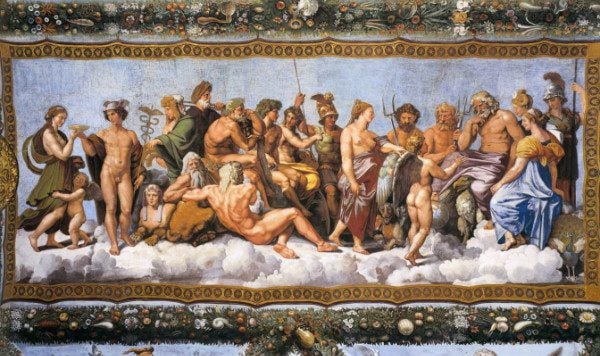
Rua Lupa: I wouldn’t be surprised if that happened. It looks like the more science explains, the more the ‘Supernatural’ (Gods/Goddesses included) are getting pushed out.
Jason Mankey: I sometimes feel like we deity believers are going to be the ones left out of the Pagan umbrella, and that sort of bugs me because I feel like we were here first. I don’t mind sharing the tent by any means, but I don’t want to be known as a “polytheist.” I want to be a Pagan.
Molly Khan: I think that’s an interesting question Jason. I also advocate for less of a split- in ADF we treat deities as existing and distinct in ritual and have fun conversation afterward. This is the kind of Paganism I enjoy
Rua Lupa: If it helps Jason, I don’t feel like I really properly fit in the Umbrella. I just stumbled in from the nudging of others (which I didn’t mind – its a good party in here
Niki Whiting: I would hate to see the camps split in a polarized fashion, the way American politics split.
John Halstead: Niki, isn’t that what Polytheist.com and Many Gods West is all about?
Niki Whiting: “All about” What do you mean?
John Halstead: Creating a separate community, free from the “A word.”
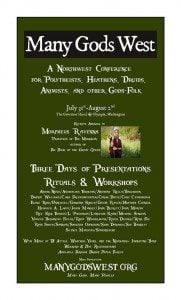 Niki Whiting: John, I think the space that Polytheist.com and MGW are creating are important. I can’t speak for poly.com’s ultimate aims, but MGW is….. well, expanding conversations we want to have but not in any way fostering a split. The people involved there are part of a wide variety of communities – and I like that.
Niki Whiting: John, I think the space that Polytheist.com and MGW are creating are important. I can’t speak for poly.com’s ultimate aims, but MGW is….. well, expanding conversations we want to have but not in any way fostering a split. The people involved there are part of a wide variety of communities – and I like that.
Jason Mankey: John, last year’s Polytheist Leadership Conference felt like someone was throwing down a gauntlet. MGW feels a bit more gentle, I mean I’m going to it. There are people who wouldn’t even call me a polytheist.
Niki Whiting: I’m sure there are hard polytheists who want there to be a split and a distinction, I’m just not one of them. I’m much more in the the “get on with your good work and let others practice as they will” camp.
Jason Mankey: But Rua, twenty years ago I feel like I was the textbook definition of what would fit under the umbrella. Now I’m less and less sure.
Molly Khan: That’s fair Jason. As a Heathen also identifying as Pagan I feel like I don’t belong on either side sometimes.
Rua Lupa: Jason, I’ve always seen Pagans like yourself as the quintessential Pagan. Still do. So I don’t think you’ll ever not be. Same for Heathens.
I feel like Pagan has evolved to be the umbrella we have described as being and has numerous little pockets of specific ways of practicing and believing. Not unlike how one would describe a kind of school with all its social circles – They are all still students of that school.
Jason Mankey: When an atheist Pagan talks about “occult nonsense” it makes me want to retreat from the word “Pagan” and wrap myself in a Wiccan blanket.
I know you would never scold me over my beliefs John, but there are some who are very loud about talking down deity and magic believers.
John Halstead: I get a kick out of the fact that everyone (myself included) feels like the Pagan minority. We can’t all be the minority
Rua Lupa: I agree with John – We can’t all be the minority.
Molly Khan: Haha, a problem that may come with Paganism- we may be too used to being a minority religious group
Niki Whiting: I don’t feel like the minority, for what its worth.
Jason Mankey: Of course we can’t all be the minority, I think the majority of Pagans are still probably believers in deity to some extent (even if it’s more like Shauna’s conception) but that does feel like it’s rapidly changing.
Rua Lupa: It just looks like the social circles were always there, just that they are recently less ambiguous and are comfortable enough to draw more clear lines on where each social circle stands.
John Halstead: I have gone from one Pagan event where people said “what?! there are Pagans who believe the gods are literal beings?” to another event where people said “there’s no such thing as a Pagan atheist”. Even many Pagans don’t realize how diverse we are.
Molly Khan: In my little pocket of the Midwest, deity believers are still very much the norm (though mostly Great God and Great Goddess stuff). One of the founders of the Heathen kindred here is an atheist and almost embarrassed to admit it
Dana Corby: I think one of the biggest problems Pagans have is this false idea that we’re *a* community. No, we’re a collection of interrelated communities with a lot of terminology in common that we tend to define just differently enough that we constantly misunderstand each other.
Niki Whiting: Yes! We are a collection of communities, theo/alogies, etc.
John Halstead: Who all like the word “Pagan” for some reason.


